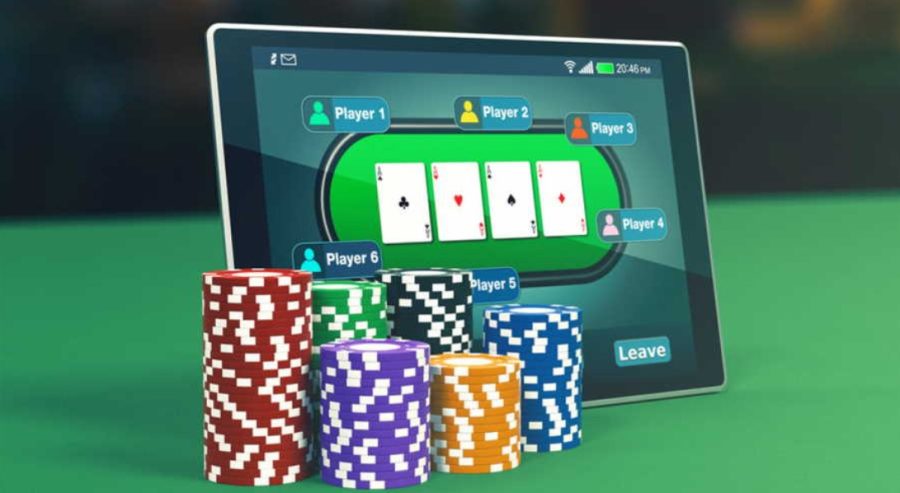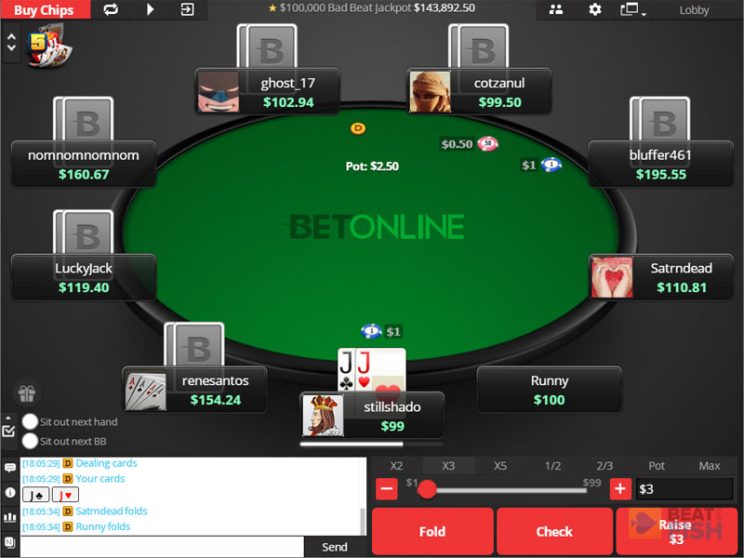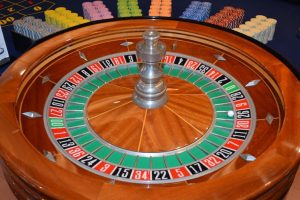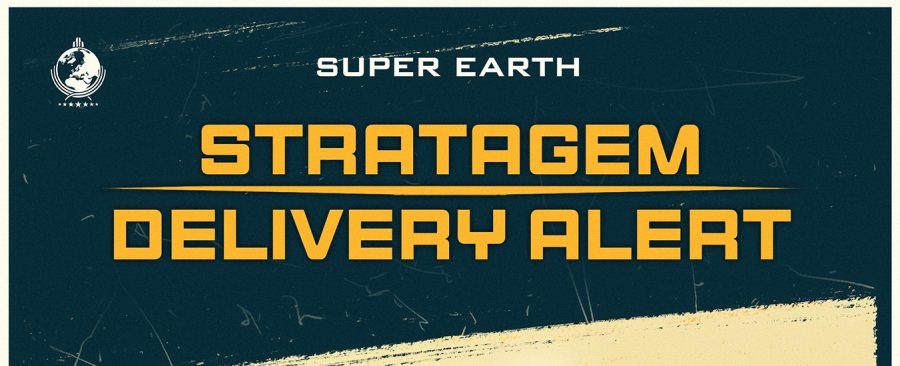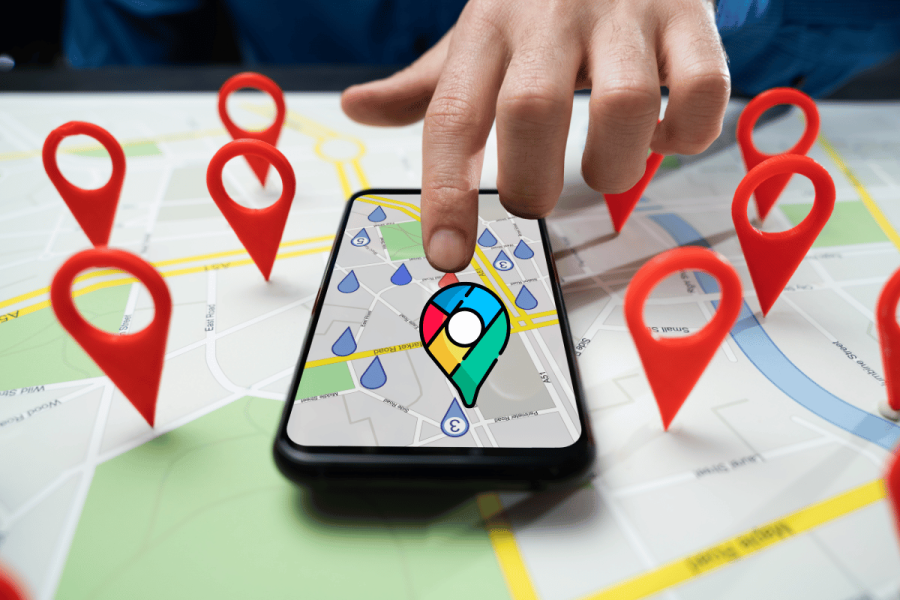If you’re someone who enjoys math, logic, psychology, and strategy, you should learn how to play poker. Mastering the basic rules of poker not only unlocks a world of entertainment, it allows you to win cash prizes. We’re not saying you should always play poker online for money. You can play for free online at many poker sites.
Guide to Basic Rules of Poker
There are many routes to success in poker. Some players are guided by numbers, others use psychology to their advantage. There’s a place for everyone at the table and, if you’re good enough, the rewards are tangible. Every year, someone wins close to $10 million in the WSOP Main Event. Entry costs $10,000, but you can qualify online for less than $1.
However, before you play for the biggest prize in poker, you need to know the basics. We’re going to show you how to play poker from the ground up. Stick with us for the next few minutes and we’ll give you everything you need to not only enjoy poker but develop a poker strategy that could take you to WSOP glory.
There are different types of poker, but all of them have the same underlying principles. We’re going to explain basic poker rules using the most popular variant, Texas Hold’em. You can play this at all the best online poker sites or your nearest casino. Here’s a quick guide on how to play Texas Hold’em poker.
Buying In
Any game of live or online poker you play will carry a buy-in. We’ll explain the differences between cash games and tournaments later in this guide. For now, just know that you need a certain amount of money to sit down at a Texas Hold’em poker table.
The Deal
A round of Texas Hold’em starts once the blinds have been posted. There’s a big blind and a small blind e.g. $1/$2 is a $1 small blind and a $2 big blind. Blinds are mandatory bets that move clockwise around the table, so everyone has to post them at some point. Once the blinds have been posted, everyone gets two hole cards that only they can see.
Pre-Flop Betting
A round of betting starts once everyone has their cards. Traditional poker rules dictate that there are three betting systems:
- Limit – the amount you can bet/raise is limited to the size of the blinds
- Pot Limit – the amount you can bet/raise is limited to the size of the pot
- No Limit – there are no limits on the amount you can bet/raise
All systems can be used for Texas Hold’em. However, in general, No Limit games are most popular at our recommended poker sites.
Betting starts to the left of the big blind. The players to the left can call (put in chips equal to the size of the big blind), raise, or fold. Play moves clockwise until everyone has either folded or matched the last biggest bet.
Flop Betting
The flop follows the initial betting round. Three cards are dealt in the middle of the table. They’re known as community cards because everyone can use them in conjunction with their cards to make a hand.
The action starts with the player immediately to the left of the dealer (the “button”) and proceeds clockwise until the last biggest bet has been called. If one of the poker players bets or raises and no one matches it (i.e. everyone else folds), they win the hand by default.
Turn Betting
The turn is a fourth community card. This card is dealt if two or more players progress from the flop. The same poker rules we described in the previous section apply here i.e. betting continues until the last biggest bet has been matched or only one player remains.
River Betting
The river is a fifth community card. This card is dealt if two or more players progress from the turn. The same poker rules we described in the previous section apply here i.e. betting continues until the last biggest bet has been matched or only one player remains.
Showdown
A showdown takes place if two or more players make it to the river and everyone matches the last biggest bet. At this point, everyone reveals their cards.
These cards can be combined with the community cards to make a five-card hand. The best hand wins the pot according to poker hand rankings. If two or more remaining players have hands of equal rank, the pot is split evenly.
Poker Basics: Best Starting Hands
Now that you’ve had a basic overview of how to play poker for beginners, it’s time to talk about strategy. We’ve explained that showdowns are decided by the rankings of poker hands. The rankings you’ll use when you play poker online or live are as follows:
| Hand | Description |
| Royal Flush | 10-J-Q-K-A – all cards are the same suit |
| Straight Flush | Five cards of the same suit in sequential order e.g. 5-6-7-8-9 all diamonds |
| Four-of-a-Kind | Four matching cards e.g. 4-A-A-A-A |
| Full House | A pair and three matching cards e.g. K-K-A-A-A |
| Flush | Any five cards of the same suit e.g. 5-2-J-K-8 all hearts |
| Straight | Five cards of any suit in sequential order e.g. 6-7-8-9-10 |
| Three-of-a-Kind/Trips | Three matching cards e.g. 4-7-A-A-A |
| Two Pair | Two pairs e.g. A-A-4-Q-Q |
| A Pair | Two matching cards e.g. A-A-4-9-10 |
| A High Card | Your highest card |
Those are the official poker hand rankings. Based on this information, you can see that it’s best to play hands when you’re dealt high cards and/or connected cards (i.e. close in value or the same suit). Some of the best starting hands in Texas Hold’em are:
Join our recommended poker sites like BetOnline and enter freerolls where you can win cash prizes without any risk.
BetOnline Poker US
100% Up to $1,000 Poker Welcome Bonus 100% Up to $1,000 Poker Welcome Bonus
BetOnline Poker US
Play Now
How Online Poker Works
We’ve given you an overview of how to play poker, now it’s time to put your newfound knowledge into practice. The steps below combine everything we’ve said so far and walk you through the process of playing poker online and winning real money.
Find an Online Poker Site
Our reviews give you an honest assessment of the top online and offshore poker sites. Use these reviews to find a site that suits your needs and use our registration link to create a free account.Find a Game
There are various ways to play poker online. We’ve used Texas Hold’em for our examples, but you can try different variants. Our tip is to start with Hold’em freerolls. These tournaments are free to enter and give you the chance to practice your skills and win at poker without any risk.Experiment with Different Games
Search the lobbies of your chosen poker sites to find different free-play cash games and tournaments. Use them to practice poker basics.Make a Deposit
When you’re confident you know how to play poker, make a deposit. Start with a small amount you can afford to lose.Buy Into a Low-Stakes Game
The top online poker rooms have hundreds of cash games and tournaments. Find some that cost a few cents to enter and start playing for money.
Use the free-play games at our top-rated sites to master the basics of poker before you play for cash prizes!
Pros & Cons of Online Poker
Why should you play online poker instead of sitting down in a live game? In reality, you can do both. However, if you can only choose one, here are some things to consider:
Pros:
- You get quick and easy access to games
- You can play with virtual chips and enter freerolls
- There are games suitable for all bankrolls
- You can play for big prizes for small amounts of money
- It’s possible to qualify for big events for less than $1
- You can play multiple games at once
Cons:
- The average skill level is higher online than in live games
- Some poker variants aren’t popular online
- There’s less social interaction online
Popular Poker Games
How do you play poker in different ways? The beauty of poker is that it can be played in a variety of formats. Basic poker rules apply in all situations. However, depending on whether or not you prefer games with an end goal, you can choose the following formats:
Tournaments
Poker tournaments have a fixed buy-in, which means you pay a certain amount to enter. This entitles you to a stack of chips. The chips don’t have any value outside of the tournament.
However, the aim is to win chips from your opponents while trying not to lose yours. Making it “into the money” means you’ve outlasted enough players to win a cash prize. Tournaments end when one player has all the chips.
Cash Games
Cash games don’t have a start or end point. They run as long as people are at the table. Each table has set betting limits determined by the “blinds.”
For example, a $1/$2 game means the blinds are $1 (the small blind) and $2 (the big blind). These are forced bets that players have to pay to receive cards. The size of the blinds dictates what the minimum and maximum buy-in for a game is.
In our example, the minimum buy-in would be $40 (20x the big blind) and the maximum would be $200 (100x the big blind).
Sit & Gos
Sit & Gos (SNGs) are mini-tournaments. They carry a fixed buy-in and the number of entries is capped. The cap on entries means that games start as soon as a table is full. In general, SNGs are capped at two, six, or nine players. However, larger poker sites may run SNGs with up to 100 players.
Freerolls
Freerolls are online poker tournaments that don’t cost anything to enter. You can gain entry by either registering before the start time or using tickets you’ve earned through promotions. The nice thing about freerolls is that the top finishers win cash prizes.
Satellites
Satellites are also known as qualifiers because they allow you to qualify for a bigger event. For example, let’s say an offshore poker site has a $200 weekly tournament. That might be too much for your budget, but you spot a $1 satellite where the winner gets a $200 ticket. You play and win the ticket. This means you can enter the $200 having only spent $1.

Amateur player Chris Moneymaker famously qualified for and, subsequently won, the 2003 WSOP Main Event for $1.5 million after qualifying via a $39 online poker satellite. He’s the reason thousands of people learned how to play poker. If Moneymaker can do it, there’s no reason you can’t.
Play poker at Bovada now to get your Moneymaker journey started.
100% up to $500 Deposit Bonus 100% up to $500 Deposit Bonus
Other Popular Poker Variants
Texas Hold’em isn’t the only variant in town. The poker rules we’ve outlined in this guide can help you play any variant, including these popular games:
Omaha Hi
This poker variant is similar to Hold’em. However, instead of two cards, each player receives four. Everyone must use two in conjunction with three of the five community cards. It’s good to know how to play Omaha poker if you want to enjoy some of the hottest cash games.
Omaha Hi-Lo (Omaha 8)
Omaha Hi-Lo is a split-pot game, which means players can win half the pot with the best low hand, half the pot with a high hand, or scoop the whole pot by having the best low and high hands.
Stud
Stud can be played with five or seven cards. No community cards are dealt in this game. Instead, players receive their cards, some of which are dealt face-up and some of which are dealt face-down.
Razz
Razz is a lowball version of 7-Card Stud. This means that hands with the lowest five cards win, instead of hands with five high-ranking cards.
Top 5 Poker Tips
You’ve now got all the relevant information on how to play poker. However, the basic rules of poker are only a foundation. Your journey to becoming a skilled player capable of winning $10 million prizes has only just begun. Below are five online poker tips to get you started.
Tight is Right
It’s a cliched saying in poker, but playing tight pre-flop is the right thing to do as a novice. Waiting for good starting cards gives you the best chance of making a strong hand you can win a showdown with.
Size Your Bets Accordingly
Betting random amounts is a bad idea. A standard pre-flop opening bet should be around 2.5x the size of the big blind. Raises should be approximately 2.5x to 3x the size of the previous bet.
Tell a Convincing Story
Poker is all about telling stories that make sense. If you’re going bluff, make sure you play the hand as if you’ve got something strong. This means betting aggressively from the start. Any inconsistencies in your story will give opponents a reason to make the right moves against you.
Watch Everything Your Opponents Do
Take note of when opponents bet, how often they play hands, whether they’re aggressive or passive, the time it takes to make decisions, and the hands they’ve shown. All of this information will help you get a better idea of the hands people play.
Have Fun and Play Responsibly
Poker is fun, whatever and wherever you play. Enjoy the process, even if the results don’t go your way. Learn as much as you can and never spend more than you can afford to lose.
Play Free Poker Online
How do you play poker for free online? Simple: join our recommended poker sites. Our top picks are safe, packed with great features, and, most importantly, they have free games. You can utilize bankroll management to play a variety of games without going bust. Our recommendations also offer freeroll tournaments with cash prizes.
Start with free online poker games at Everygame today.
250% Bonus For Slots, Cards & Table Games 250% Bonus For Slots, Cards & Table Games
FAQs
How do you play poker?
Can you win money playing poker online?
Where can I play poker?
Responsible Gambling
Never risk more than you can afford to lose. Always gamble responsibly and remain in control at all times. Start by setting deposit limits and keep track of your playing time. Sessions should be short, to begin with.
